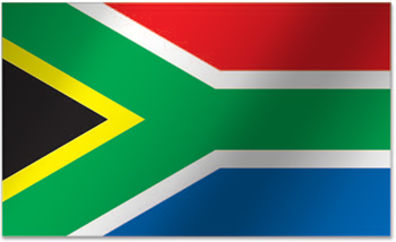30 May 2016
Summary
The aim of this joint German-South African call for proposals is to intensify cooperation between South Africa and Germany in the areas of science, research and technology.
Existing collaborations are to be expanded and new project collaborations initiated. The funded projects are also intended to provide preparation for the submission of applications for more extensive funding to the Federal Ministry of Education and Research (BMBF) and other funding providers such as Deutsche Forschungsgemeinschaft (DFG) or the European Union (EU).
Special importance is attached to the scientific excellence of the South African and German partners involved in the joint projects as well as to the inclusion of young researchers from both countries. The participation of companies, particularly small and medium-sized enterprises (SMEs) from Germany, is especially welcome.
This call is based on the agreement on cooperation in the fields of science, research and technology between Germany and South Africa of 12 June 1996.
The funding aims to initiate, intensify and network research collaborations between German and South African higher education institutions and research institutions as well as German SMEs for the following purposes:
- Scientific exchanges with the partner country South Africa
- Development of joint project ideas in those thematic areas which are important to the research policy of both countries:
- Bioeconomy: Using renewable resources for industry (see also number 4.4 of the German National Research Strategy BioEconomy 2030)
- Development of processes for using biomass in zero-waste biorefineries
- Identification of new bioactive substances as basic chemicals
- Development of effective and more efficient conversion processes for biomass
- Resource management
- Mineral resources
Resource efficiency and sustainable raw-material technologies for economically strategic raw materials; innovation to increase raw material productivity; sustainable exploitation and management of resources; increasing resource efficiency by means of innovative product design; substitution of critical raw materials; making use of secondary materials through recycling - Satellite exploration
Satellite-based exploration of deposits of economically strategic raw materials; satellite-based monitoring of sustainable resource extraction - Water
Urban water resource management (including informal settlements); Water management in connection with sustainable resource extraction (including remediation technologies for water bodies)
- Mineral resources
- Bioeconomy: Using renewable resources for industry (see also number 4.4 of the German National Research Strategy BioEconomy 2030)
- Building up new contacts to key players in the respective partner country and enabling access to internationally unique research locations and infrastructures
- Flanking ongoing research and development activities by networking junior researchers (PhD students) in both countries
- Supporting junior research capacity development in both countries
- Contributing to a commercial exploitation of research results, inter alia by involving German SMEs
Applications may be submitted by German universities, non-university research institutions and other institutions contributing to research as well as commercial companies headquartered in Germany – particularly SMEs – which fulfil the funding purpose and requirements. Research institutions which receive joint basic funding from the Federal Government and the Länder can only be granted project funding supplementary to their basic funding to cover additional project-related expenditure or costs under certain preconditions.
Projects proposed for funding under this call must be conducted with at least one partner from South Africa. The National Research Foundation (NRF) is publishing a parallel announcement in South Africa. The project outline must be submitted by the German applicant to the DLR Project Management Agency (DLR-PT) and by the South African project manager to the NRF.
Projects proposed for funding under this call should provide evidence of potential for longerterm sustainable cooperation with South Africa.
Funding recipients are obliged to participate in possible evaluation measures and to provide any information needed to assess the success of the funding measure. Participation in a kickoff workshop to be organized by the funding agencies (NRF and DLR-PT) in 2017 and in the concluding workshop at the end of the project duration is obligatory.
The basis for calculating the grants for universities, research and science institutions and similar establishments is the eligible project-related expenditure (in the case of the Helmholtz centres and the Fraunhofer-Gesellschaft (FhG), eligible project-related costs), which can receive funding in individual cases for a maximum period of 48 months with up to 100% coverage or max. EUR 100,000.
Procedure
In the first application phase, project outlines are to be submitted to the project management organization in electronic and/or written form
by 30 July 2016
at the latest.
Contact:
Petra Ruth Vogel
Phone: +49 2 28/38 21-14 61
E-Mail: petra-ruth.vogel@dlr.de
Mr Teuns Phahlamohlaka
Phone: +27(0) 12 4 81 43 85
E-Mail: teuns.phahlam@nrf.ac.za
The outline should not exceed seven pages. The project outline should deal with the following:
- Information on the project coordinator and partners
- Description of the scientific objective of the project
- Information on the state of the art (including the applicant's previous work, experience and findings)
- Assessment of potential for exploitation and application
- Details of how junior scientists will be included in the proposed project
- Involvement of third parties
- Estimated expenditure/costs (prospective funding requirement)
The project outlines received will be evaluated in accordance with the following criteria:
- Fulfilment of the formal prerequisites for funding
- Compliance with the funding objectives of the call and the thematic priorities identified above.
- Scientific quality and originality of the project
- Relevance to BMBF programmes on the topic
- Expertise of the applicant and the partners involved
- Involvement of young researchers
- Scientific benefits and prospects for the commercialization of the expected results
In a second step, applicants whose project outlines have been evaluated positively will be invited to submit a formal application for funding on which a decision will be taken after final evaluation.








